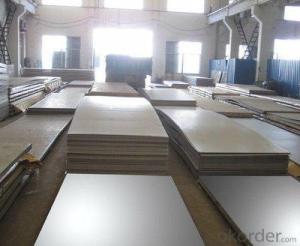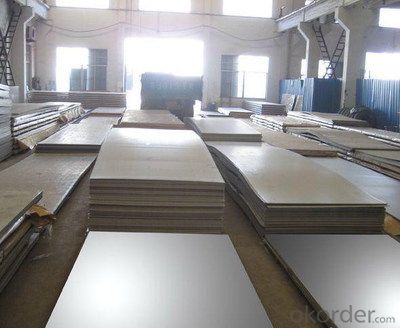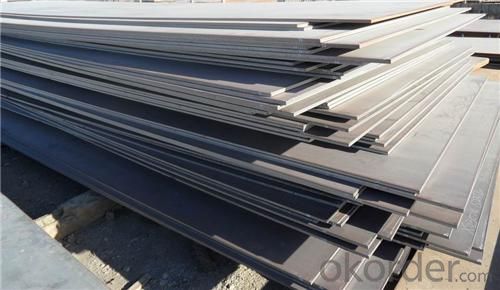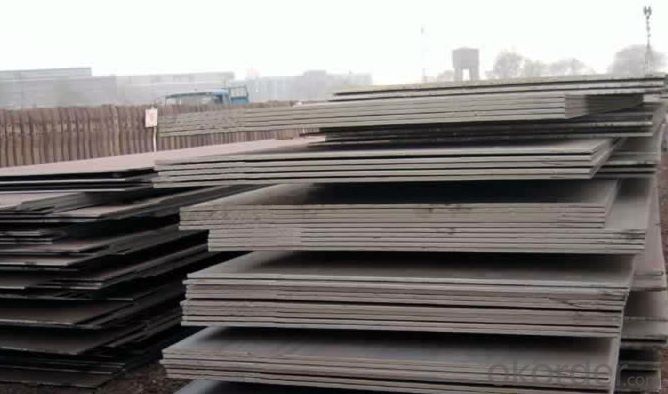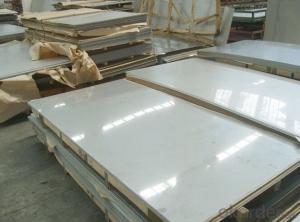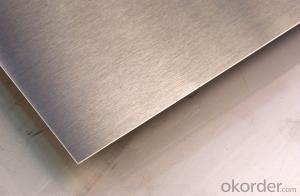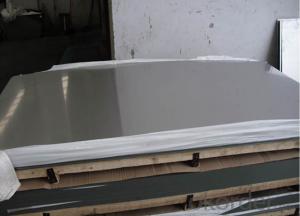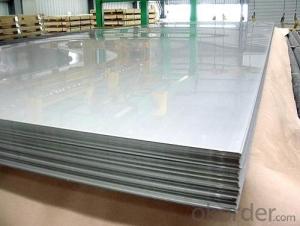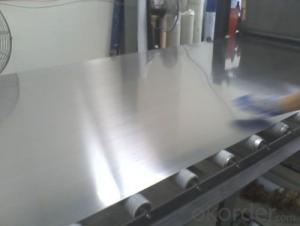Spring Steel Plate AISI 6150 Steel Sheet
- Loading Port:
- China main port
- Payment Terms:
- TT OR LC
- Min Order Qty:
- 30 m.t.
- Supply Capability:
- 10000 m.t./month
OKorder Service Pledge
OKorder Financial Service
You Might Also Like
Specification
Spring Steel Plate AISI 6150 Steel Sheet
Product information:
| Measurement | Thickness | Width |
| 6mm~35mm | 40mm~150mm | |
| Edge(Cross Section) | Round edge profile to DIN59145 | Square edge profile to DIN59146 |
| Bundle Weight | Around 2.0 MT | |
| Technique | Hot Rolled | |
| Surface | Grooved | Plain-smoothed |
| Quenchant | Oil/Water | |
| Temper Stressing | 480째C-560째C | |
| Quenching Temprature: | 800째C-1000째C | |
| OEM | Material Composition Offered by Customers | |
| Application | sup9/sup9a/sup10/55Cr3/50CrV4 | Automotive suspension springs |
| sup7/9260/30CrMnB/27CrMnB/1045 | Rotary tools and Blades | |
| Payment Term | 100% L/C at Sight. | 30% T/T Down Payment, Balance Against B/L Copy. |
| Packing | In bundles. Each bundle packed with 2 steel strips and 3 steel wires. | |
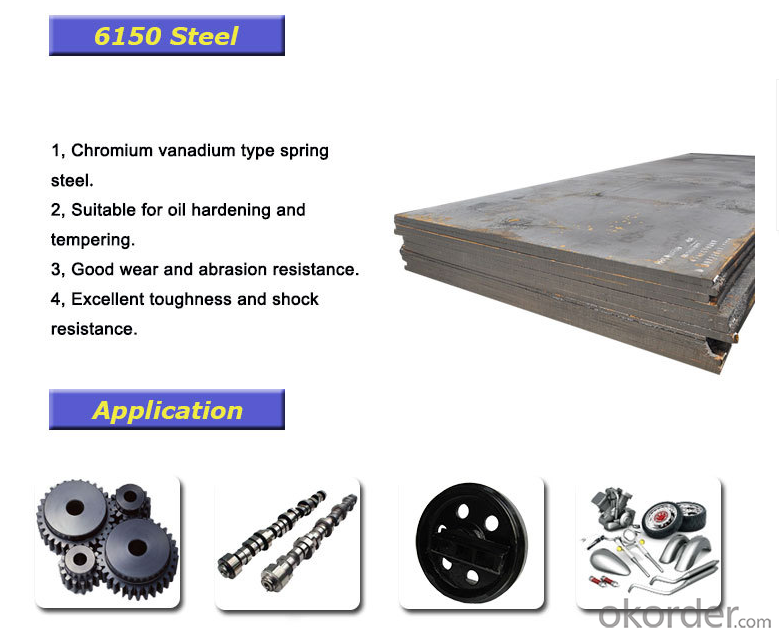
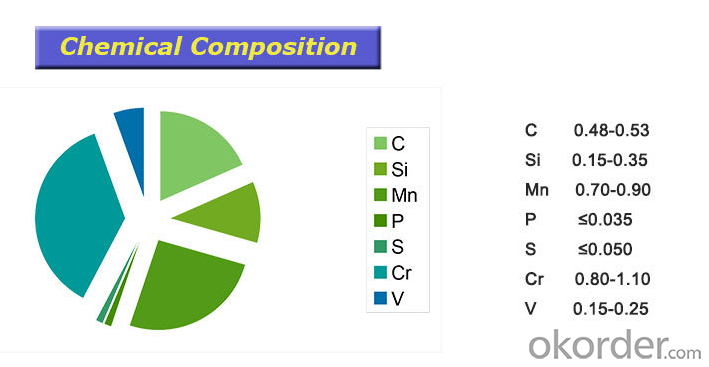
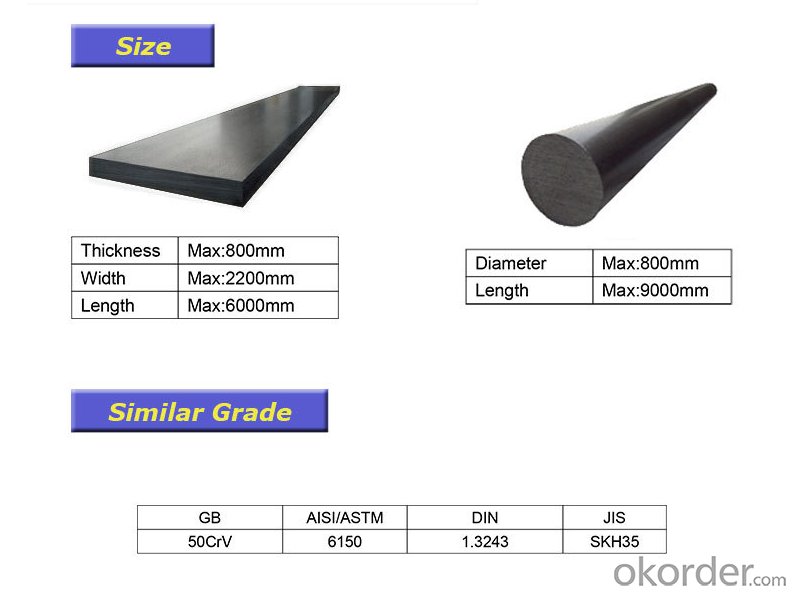
Other products show:
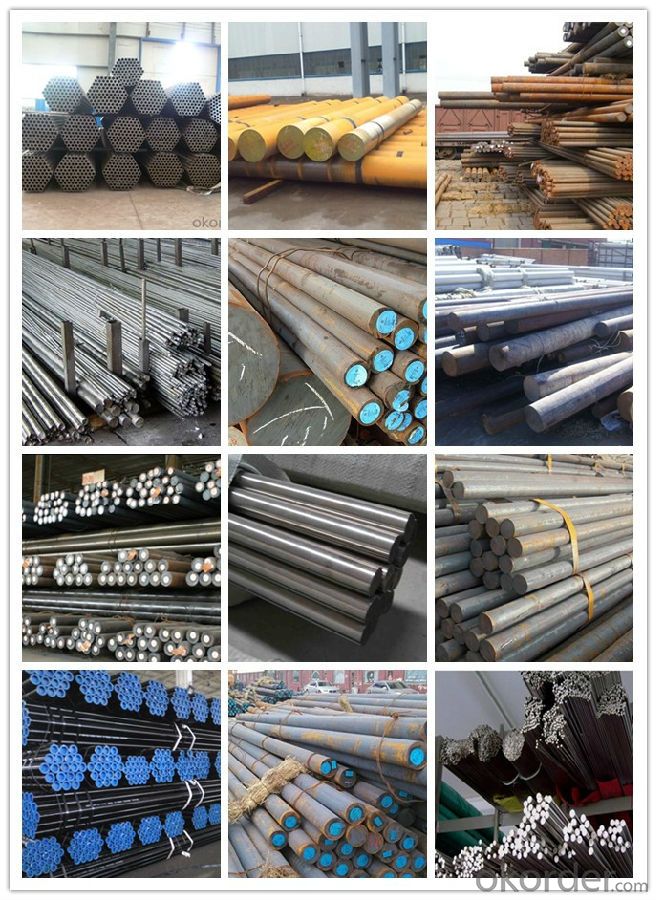
Our workshop show:
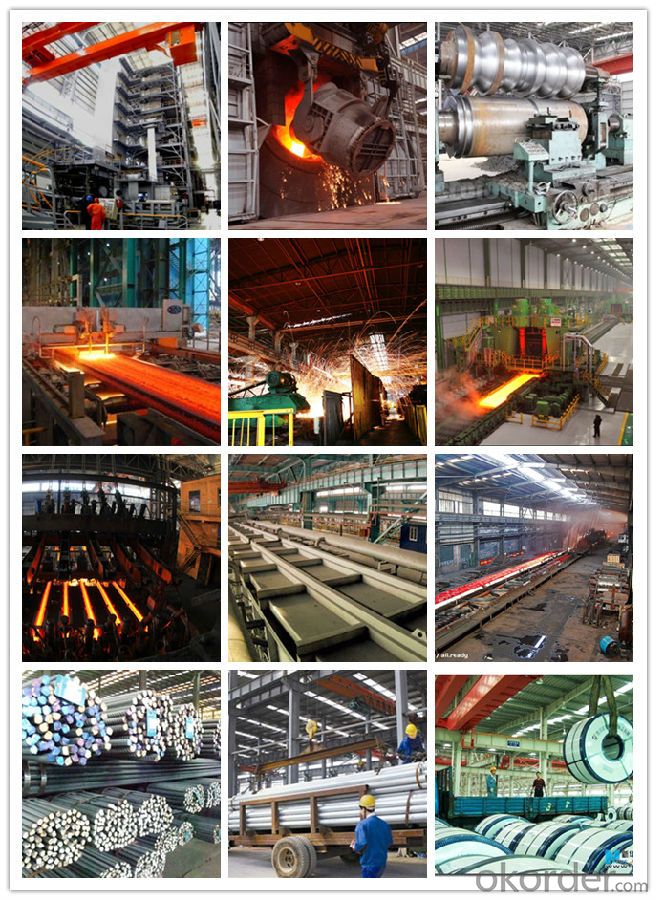
Our service:
-High manufacturing accuracy
-High strength
-Small inertia resistance
-Strong heat dissipation ability
-Good visual effect
-Reasonable price
Chose happens because of quality, then price, We can give you both.Additionally, we can also offer professional products inquiry, products knowledge train(for agents), smooth goods delivery, exellent customer solution proposals.Our service formula: good quality+good price+good service=customer's trust
SGS test is available, customer inspection before shipping is welcome, third party inspection is no problem.
If you need the sample, please feel free to let me know. Any question, we will contact you ASAP!
- Q: How does special steel contribute to the oil and gas machinery industry?
- Special steel plays a crucial role in the oil and gas machinery industry by offering exceptional strength, durability, and corrosion resistance. It is commonly used in the manufacturing of drill pipes, valves, pumps, and other critical components. The high tensile strength of special steel ensures the safe and efficient extraction of oil and gas, while its resistance to extreme temperatures and harsh environments enhances the reliability and longevity of machinery. Additionally, special steel's ability to withstand high-pressure conditions and prevent leakage makes it an essential material in the oil and gas sector.
- Q: Is special steel suitable for manufacturing precision components?
- Manufacturing precision components can greatly benefit from the use of special steel. This type of steel is specifically designed to possess exceptional qualities such as high strength, hardness, and resistance to wear, corrosion, and heat. These outstanding characteristics make it the perfect choice for creating precision components that demand tight tolerances, accuracy, and reliability. The inherent strength and hardness of special steel enable the production of durable and long-lasting precision components. This is particularly crucial in industries where components are exposed to intense stress and heavy loads, such as aerospace, automotive, and machinery manufacturing. The wear and corrosion resistance of special steel ensures that the precision components can withstand harsh operating conditions and retain their functionality over extended periods of time. Moreover, special steel's remarkable heat resistance qualifies it for precision components that encounter elevated temperatures. This is especially significant in industries like aerospace and power generation, where components must endure extreme heat without compromising their performance. In addition, special steel offers excellent machinability, which is vital for manufacturing precision components with intricate designs and complex geometries. It can be easily shaped, cut, and formed into various sizes and shapes, enabling the production of intricate and precise components. Overall, the exceptional properties of special steel, including high strength, hardness, resistance to wear, corrosion, and heat, along with its superb machinability, make it highly suitable for manufacturing precision components. Its utilization guarantees the creation of high-quality components that adhere to the stringent requirements of precision applications.
- Q: What are the different chemical resistance grades of special steel?
- Special steels, often referred to as stainless steels, are known for their excellent resistance to corrosion and chemical attack. They are a group of alloys that contain a high proportion of chromium, which forms a protective oxide layer on the surface, preventing further corrosion. The resistance of special steel to various chemicals can vary depending on the specific grade or alloy composition. Here are some of the common chemical resistance grades of special steel: 1. Austenitic Stainless Steel: This is the most common type of stainless steel and offers excellent resistance to a wide range of chemicals, including organic acids, alkalis, and salts. The most widely used grade within this group is 304 stainless steel. 2. Ferritic Stainless Steel: Ferritic stainless steels have lower corrosion resistance compared to austenitic grades but still offer good resistance to many chemicals. They are particularly resistant to nitric acid and some organic acids. Grade 430 stainless steel is a common example of ferritic stainless steel. 3. Martensitic Stainless Steel: Martensitic stainless steels are known for their high strength and hardness. While they have lower corrosion resistance compared to austenitic and ferritic grades, they can still exhibit good resistance to certain chemicals, especially in mildly corrosive environments. 4. Duplex Stainless Steel: This type of stainless steel combines the properties of both austenitic and ferritic grades, providing enhanced strength and improved resistance to stress corrosion cracking. Duplex stainless steels offer excellent resistance to a wide range of chemicals, including organic acids, chloride-containing solutions, and saltwater. 5. Precipitation-Hardening Stainless Steel: These steels can be heat-treated to achieve high strength and corrosion resistance. They are typically resistant to a wide range of chemicals, including organic acids, alkalis, and some organic solvents. It's important to note that the chemical resistance of any steel grade can also be influenced by factors such as temperature, concentration of the chemical, and the presence of other corrosive agents. Therefore, it is advisable to consult the manufacturer's specifications or seek expert advice when selecting a special steel grade for specific chemical resistance requirements.
- Q: What are the different types of special steel coatings?
- There are several types of special steel coatings, including zinc coatings (galvanization), aluminum coatings (aluminizing), chrome coatings (chromium plating), and ceramic coatings, among others. Each type of coating offers unique benefits and properties, such as corrosion resistance, improved durability, increased hardness, and enhanced heat resistance, depending on the specific application requirements.
- Q: How is corrosion-resistant alloy steel used in the production of chemical processing equipment?
- Corrosion-resistant alloy steel is used in the production of chemical processing equipment due to its ability to withstand the harsh chemical environments and resist corrosion. It is commonly used to manufacture pipes, tanks, valves, and other components that come into contact with corrosive substances. This type of steel helps ensure the longevity and reliability of the equipment, preventing leaks, contamination, and costly repairs or replacements.
- Q: What are the properties of spring steel?
- Spring steel is a type of high carbon steel that possesses excellent elasticity and resilience, making it ideal for applications requiring strong and flexible materials. It exhibits superior strength and hardness, along with good fatigue resistance, which allows it to withstand repeated bending or twisting without deforming or breaking. Moreover, spring steel is known for its high yield strength, allowing it to store and release energy efficiently, making it suitable for various spring applications such as suspension systems, mechanical springs, and tools.
- Q: What are the requirements for special steel used in power plants?
- The requirements for special steel used in power plants are specific and stringent, given the critical role that these materials play in ensuring the safe and efficient operation of power generation facilities. Some of the key requirements for special steel in power plants include: 1. High temperature resistance: Special steel used in power plants must be able to withstand high temperatures without losing its structural integrity. This is crucial as power plants operate at elevated temperatures, especially in areas such as the combustion chamber or steam turbines. 2. Corrosion resistance: Power plants often operate in environments with high levels of moisture, chemicals, and other corrosive elements. Special steel must possess excellent corrosion resistance to prevent degradation and premature failure caused by chemical reactions or rusting. 3. Strength and toughness: As power plants generate significant amounts of energy, the components made of special steel must exhibit high strength and toughness to withstand the mechanical stresses and loads they are subjected to. This includes resistance to fatigue, creep, and stress corrosion cracking. 4. Weldability: Power plant components often require welding during fabrication or maintenance. Special steel should have good weldability to ensure strong and reliable joints that maintain the structural integrity of the overall system. 5. Low thermal expansion: Special steel used in power plants should have low thermal expansion properties to minimize the risk of thermal stress and distortion that can occur due to temperature variations during operation. This ensures dimensional stability and prevents premature failure. 6. Resistance to radiation: In some power plants, such as nuclear facilities, special steel may be exposed to radiation. Therefore, it is necessary for the steel to have good resistance to radiation damage, ensuring its long-term performance and safety. 7. Compliance with industry standards: Special steel used in power plants must meet specific industry standards and codes to ensure its quality, reliability, and safety. These may include standards such as ASTM, ASME, or ISO, among others. Overall, the requirements for special steel used in power plants are driven by the need for high temperature resistance, corrosion resistance, strength, weldability, low thermal expansion, radiation resistance, and compliance with industry standards. Meeting these requirements ensures the integrity and longevity of power plant components, contributing to the safe and efficient generation of electricity.
- Q: How is corrosion-resistant stainless tool steel used in the production of food processing equipment?
- Corrosion-resistant stainless tool steel is used in the production of food processing equipment because it offers a high level of resistance against chemical reactions, rust, and staining caused by exposure to moisture and food acids. This type of steel helps ensure that the equipment remains durable, hygienic, and safe for food processing operations.
- Q: Is special steel suitable for manufacturing firearms?
- Yes, special steel is suitable for manufacturing firearms. Special steel, also known as alloy steel, offers excellent strength, durability, and resistance to wear and tear, making it an ideal material for firearm production. It provides the necessary mechanical properties required for firearm components, ensuring reliable performance and long-lasting functionality. Additionally, special steel can be heat-treated to enhance its hardness and toughness, further enhancing its suitability for manufacturing firearms.
- Q: What are the properties of titanium alloys?
- Titanium alloys have several notable properties. First, they are known for their exceptional strength-to-weight ratio, making them highly desirable in industries such as aerospace and automotive engineering. They also exhibit excellent corrosion resistance, even in harsh environments, which contributes to their durability and longevity. Additionally, titanium alloys possess a high melting point, allowing them to retain their structural integrity at elevated temperatures. These alloys are also biocompatible, making them suitable for medical applications such as orthopedic implants. Overall, titanium alloys combine strength, lightness, corrosion resistance, high melting point, and biocompatibility, making them versatile and valuable materials in various industries.
Send your message to us
Spring Steel Plate AISI 6150 Steel Sheet
- Loading Port:
- China main port
- Payment Terms:
- TT OR LC
- Min Order Qty:
- 30 m.t.
- Supply Capability:
- 10000 m.t./month
OKorder Service Pledge
OKorder Financial Service
Similar products
Hot products
Hot Searches
Related keywords
